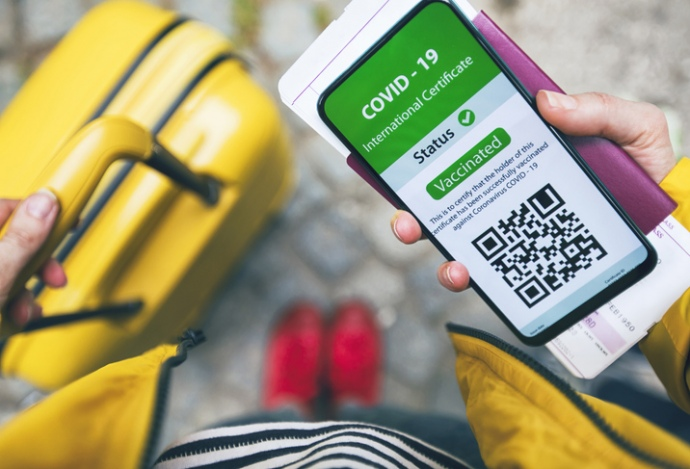EU Council approved modified travel recommendations during the epidemic.


The EU Council approved modified travel recommendations during the COVID-19 pandemic, which are now based on the "individual situation" of travelers and are not tied to the region of origin.The recommendation will take effect on February 1. It was adopted considering the significant increase in vaccination coverage in EU countries and the use of the digital COVID certificate.
According to the new recommendation, COVID-19 related requirements should take into account the traveler's status rather than the situation in the region, except for territories where the virus spread level is very high.
"This means that the vaccination certificate against COVID-19, test result, or recovered disease, certified by the European digital COVID certificate, should be a key factor. The individual approach will significantly simplify the current rules and provide travelers with more clarity and certainty," the communiqué states.
It is recommended that travelers holding a valid digital COVID certificate should not be subject to additional restrictions on free movement. This implies:
- a certificate of the full course of COVID-19 vaccination, provided that more than 14 and not more than 270 days have passed since the last dose of the full course, or if the person has received a booster dose thereafter. Member states may at their discretion recognize vaccinations not only with EU-approved vaccines but also with others approved by national authorities or the WHO;
- a certificate confirming a negative PCR test result obtained no more than 72 hours before the trip, or an antigen test obtained a maximum of 24 hours before the trip;
Travelers who cannot provide such a certificate may be required to take a test before the trip or no later than 24 hours after arrival, except for exemption categories, including children under 12 years old.
The European Center for Disease Prevention and Control is asked to continue publishing "traffic light" maps showing the COVID-19 situation, taking into account incidence over the past 2 weeks, vaccination coverage, and testing volumes.
"Based on these maps, member states should apply measures regarding trips to and from 'dark-red zones' where the virus spread is very significant. In particular, it is worth advising against non-essential trips and requiring people returning from these zones who are not vaccinated or do not have a recovery certificate to take a test before departure and undergo self-isolation after arrival," the recommendation states.
Exceptions to this rule will also be provided for certain categories of travelers (those having significant functions or needs, people crossing the border for work trips, children under 12 years old).
As a precaution, it is anticipated that the recommendations may be revised if new variants of the virus causing concern are detected.
EU country ministers agreed on the application of such rules, including that any travel restrictions should be non-discriminatory and proportionate, and that EU countries should generally not restrict travel for travelers from other EU member states.
Read also
- Bitcoin Breaks Record — What’s Behind the Surge of the Cryptocurrency
- Peanut cryptocurrency sharply increased in price — what does Elon Musk have to do with it
- What is the Solana cryptocurrency in simple terms
- What is cryptocurrency Ethereum in simple terms
- What will happen to cryptocurrency in 2025
- What Will Happen to Bitcoin in 2025









